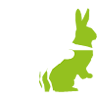About us
Health and welfare of wild and feral animals (hereafter referred to as wildlife health) are important factors in population dynamics of wildlife and environmental management in the Netherlands. Many species of wild animals are present in both urban and rural areas.
A better understanding and improved monitoring or surveillance of wildlife health is important for several reasons, including:
- the early recognition of emerging diseases;
- the possibility of transmission of disease between humans and wildlife;
- the possibility of transmission of disease between domestic animals and wildlife;
- the role of disease as indicator of environmental change;
- the threats to wild animal welfare;
- the threat of decline or extinction of wildlife species.
Historically a number of institutes in the Netherlands have worked on different aspects of wildlife health. However, a central point for questions or concerns related to wildlife health, research and monitoring activities was non-existent. In addition, not all areas of wildlife health were addressed. This led to the intitiation of the Dutch Wildlife Health Centre (DWHC) in April 2002, under the auspices of the Faculty of Veterinary Medicine of Utrecht University, the Institute of Virology of the Erasmus MC Rotterdam and the Dutch Ministry of Agriculture, Nature Management and Fisheries (LNV).
Since 2008, the DWHC is located at the Department of Pathobiology of the Faculty of Veterinary Medicine in Utrecht. It receives financial support from the Dutch Ministry of Agriculture, Nature and Food Quality (LNV), the Dutch Ministry of Health, Welfare and Sport (VWS), and the Faculty of Veterinary Medicine, Utrecht University. Representatives from Dutch institutions concerned with human or animal health and wildlife in the broadest sense form the DWHC scientific advice commission. Currently these institutions include the RIVM (Bilthoven), the WBVR (Lelystad), the GD (Deventer), WUR (Wageningen), Erasmus MC (Rotterdam), the NVWA (Utrecht), Sovon Dutch Centre for Field Ornithology (Sovon) and the Dutch Mammal Society. Representatives of institutions involved in wildlife and environmental management are invited to join the commission.
Mission
The purpose of the Dutch Wildlife Health Centre is to enhance knowledge and expertise in wildlife health in the Netherlands. This will serve to provide scientifically based information for political and practical decisions concerning public health, wild and domestic animal health, and nature conservation issues.
Tasks
- To perform post-mortem examination in cases of unusual morbidity/mortality in wildlife, initiating further investigation if deemed appropriate;
- To advise on the set-up, coordination and data analysis of surveillance for infection or disease in wildlife;
To set-up and run research projects related to previous two tasks; - To report annually to the Chief Veterinary Officer regarding wildlife disease status for the OIE (World Animal Health Organization);
- To provide training on wildlife health issues.



